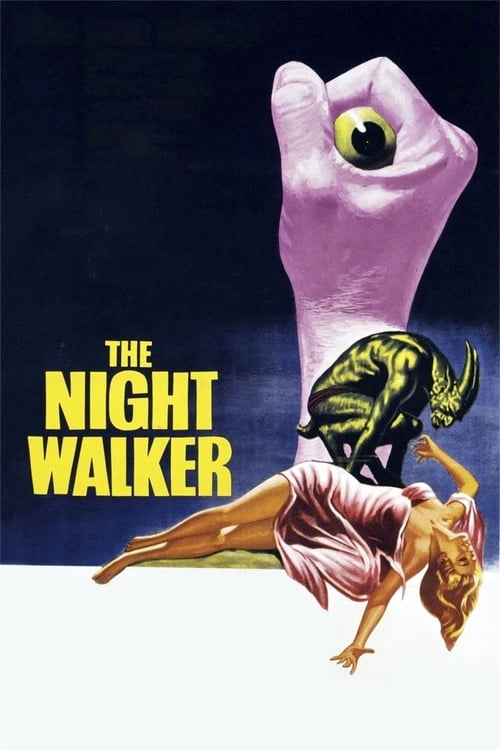Howard has a severe problem. He suspects his wife, Irene, of cheating on him. She’s begun talking in her sleep, and she’s clearly dreaming about a man that isn’t him. This is strange because he never lets her out of the house, and the only man who comes around is his lawyer Barry Moreland. So Howard confronts Barry, accuses him of cheating with his wife. But Irene and Moreland are not involved; she’s just having very vivid, recurring dreams of another man. And really, who could blame her? Howard is a jealous, controlling, angry man.
In short order he is also a dead man, blown up in a laboratory accident. Irene inherits the house, quite a lot of money, and then romantic attention from Barry. But the recurring romantic dreams of a young suitor do not stop. They are so vivid, Irene is not even sure she is dreaming them. And now, newly dead Howard is also showing up. Is Irene going insane? Or is there something even more nefarious, even supernatural, at work?

How can you possibly resist the sixth-period social studies teacher?
This is The Night Walker, a William Castle movie made for Universal Studios. It was one of Universal’s last black-and-white pictures, and it was also Barbara Stanwyck’s final film role. William Castle built his reputation on movies marketed with gimmicks. The House on Haunted Hill, for example, had fake skeletons rigged up in the theatre to fly at the audience at strategic moments. The Tingler, William Castle’s masterpiece, had the script written around a vibrating-seat trick. But these gimmicks sometimes more than doubled the budget of a movie. By the time The Night Walker came around, he was encouraged to use less expensive tricks.
There are two attention-grabbers here; the first is a screenplay by Robert Bloch. Bloch wrote the original novel for Psycho, but not the script. The other is the reuniting of Barbara Stanwyck and Robert Taylor, a Hollywood power-couple divorced in 1951. Compared to flying skeletons and vibrating seats, this seems like a real let-down.

It’s a nice day for a… sham wedding.
Stanwyck was a powerful talent, but she can’t carry this ludicrous movie. Castle’s best movies are also ridiculous, but they don’t take themselves quite as seriously as this one does. He has a tendency to over-promise and under-deliver, but films like The Tingler usually made up for it with a certain sense of charm and fun. The Night Walker is a dreary affair that starts with a storm of surreal images and ominous talk about the intense power of dreams but ends up being a prosaic melodrama with considerably less punch than your average episode of Alfred Hitchcock Presents. Which Bloch also wrote for, by the way.
Other oddities in the film: Howard is played by Hayden Rorke, who would later be I Dream of Jeannie’s meddling Air Force psychiatrist Colonel Bellows. You won’t recognize him; he’s in far too much makeup. “The Dream,” Irene’s nocturnal suitor, would later die from a Joan Collins-induced heart attack on Dynasty. These are not reasons to watch the movie, but learning this trivia serves as an after-the-fact justification for spending the time. If you would like to see it, I have a used copy of the blu-ray I could be persuaded to part with.

It “may” also turn you into a newt.

